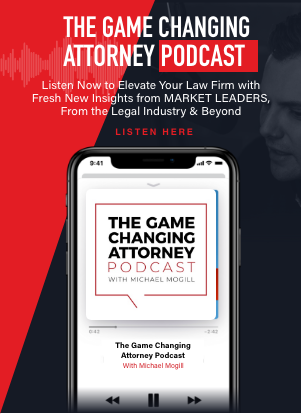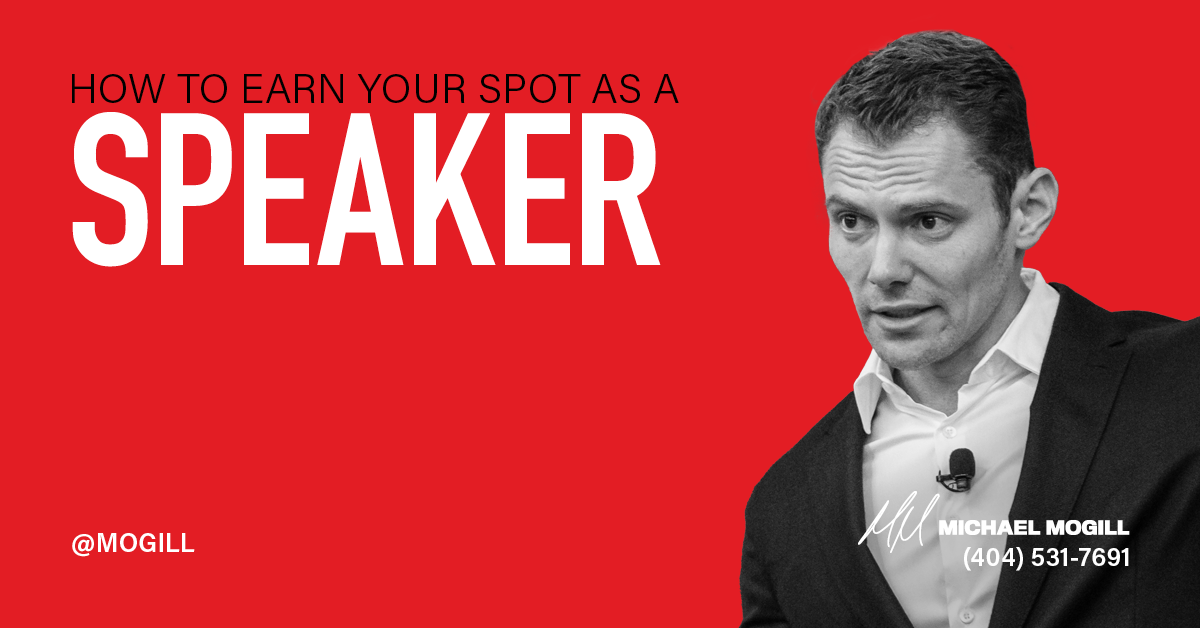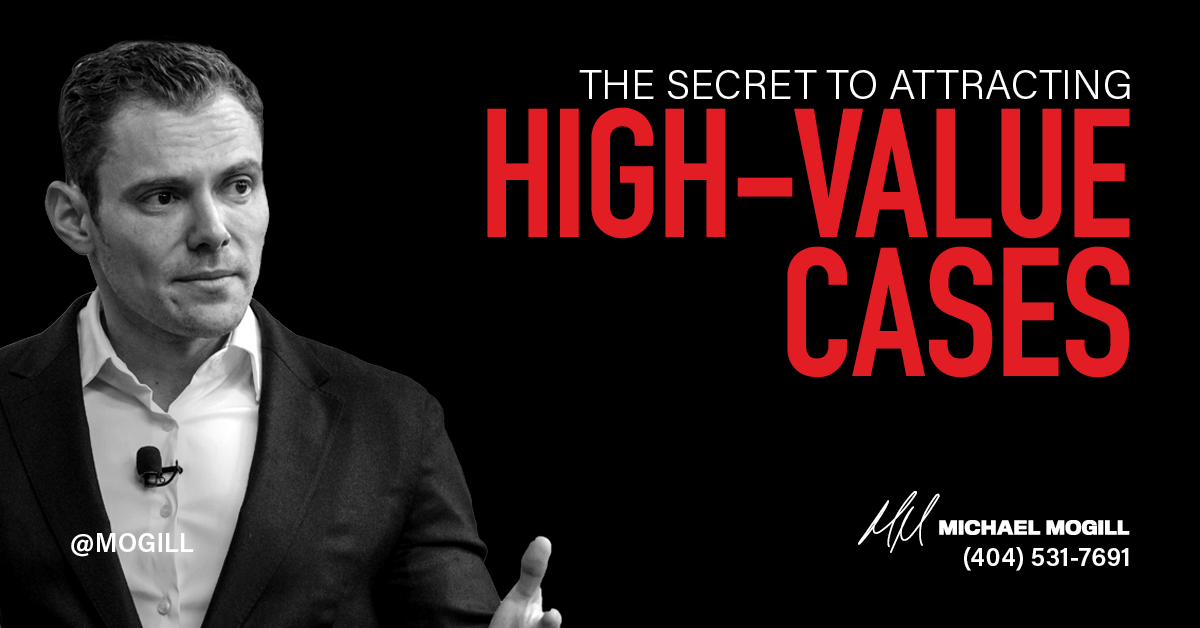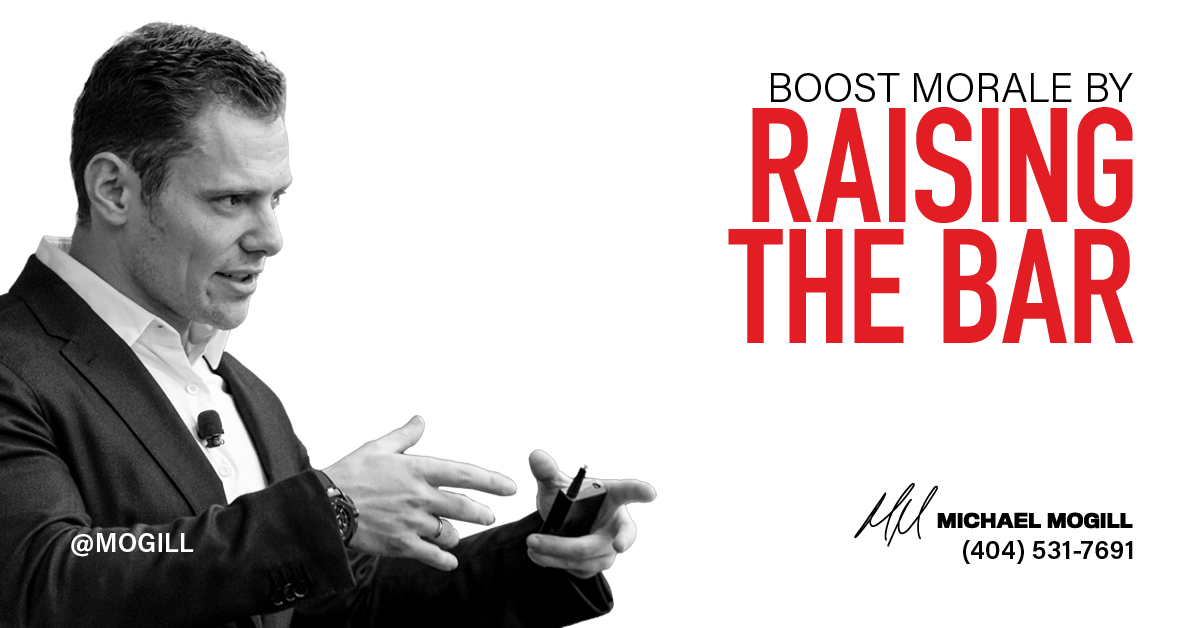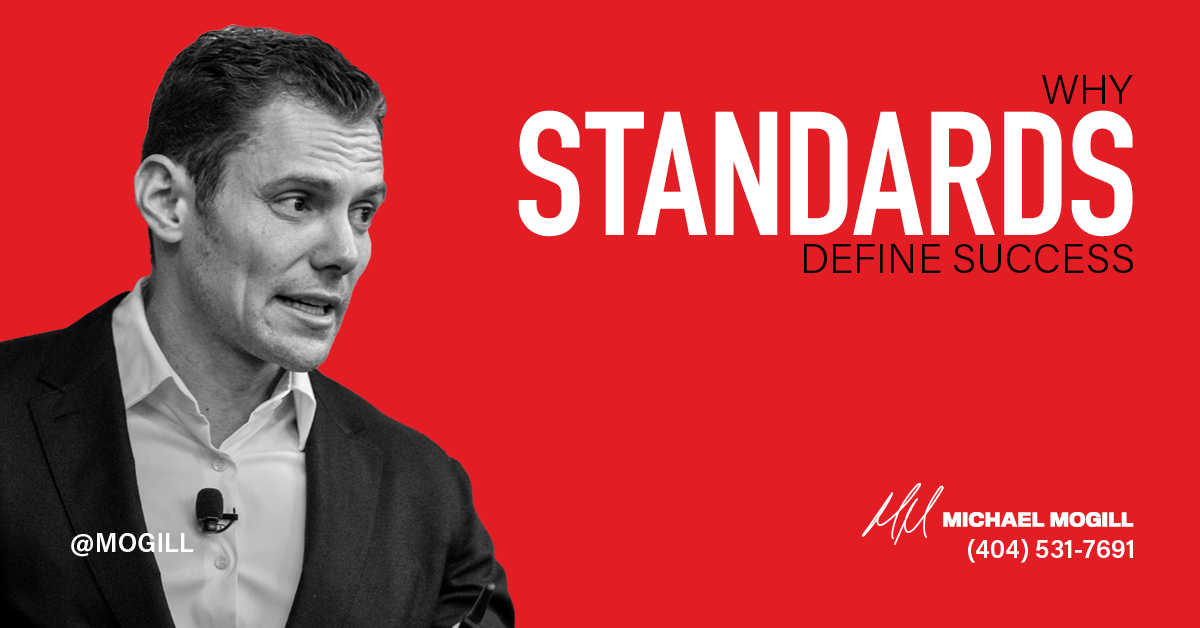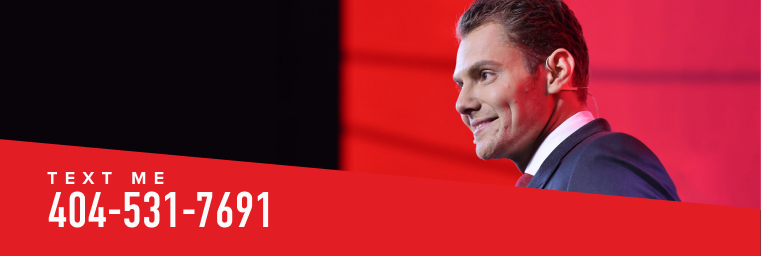I own every single element of my life. I believe that I’m accountable for every outcome, whether it’s positive, negative, or neutral. If my car gets rear ended, that is my fault and I’m 100% accountable for it. You might be asking, “Michael, why would you put that on yourself?”
I think that way because it’s a more productive mindset and it puts me in control. Things happen for me, rather than happening to me. When you’re not accountable for everything, and things just happen to you, that’s a powerless way to live. I’m not interested in being powerless.
In their book, Jocko Willink and Leif Babin call this “extreme ownership.” It’s the idea that you can choose an internal or external locus of control. With an internal locus of control, my outcomes are influenced by my own decisions and actions. So, if my company goes out of business, I believe it is 100% on me and the decisions I’ve made up to that point.
That’s actually why I decided to become an entrepreneur: I’d rather place that bet on myself, and know that if it all goes to shit, it’s my fault. I don’t want to pin my success on somebody else because I don’t know what they’re going to do or the choices they’re going to make. I could work really hard, but based on something they did, it could all go wrong. No thank you.
I’ll sleep under my desk if I have to in order to be successful. If I do, at least I’ll sleep well knowing what happens with my business tomorrow—and in the future—is up to me.
A “victim mindset” and success don’t mix
When you have an internal locus of control, you’re more resilient in the face of change. This is huge because change (i.e. adversity) is constant and getting through that change produces growth. You get through change with resilience, which comes from extreme ownership.
So, when you lose a deal, a team member leaves you, or your dishwasher breaks, you then have the chance to say, “Alright, it’s on me to fix this.” It’s a very empowering way to think.
Here’s the alternative, when you favor an external locus of control:
- The economy is so bad, no wonder we lost that deal.
- Something must be going on in Joe’s life for him to want to leave.
- Why does this always happen to me? This dishwasher isn’t that old!
I’ve never known a successful person who thinks this way. Why? Because those thoughts become your reality. If you believe that you have little power or influence over the outcomes in your life, then you’re just a victim, and life will continue to victimize you as long as you let it.
If you want to know how seriously I take this, here’s an example. A couple years ago, I had a team member miss his flight on the way to a video shoot and get stuck with a $1,500 change fee. Now, I didn’t cause him to miss the flight, but I did take ownership of the situation.
After all, I was the one who hired this team member. Whether consciously or unconsciously, I reinforced his notions around showing up on time. In my company, whenever a mistake is made, it’s my mistake, even if I didn’t make it. That means it’s up to me to fix it.
By extension, this means I’ve got to get the right people in the right seats at my company so we can create a culture of ownership and accountability. That’s part of controlling your environment. If you surround yourself with people who just go whatever direction the wind blows, then you’re going to have plenty of opportunities to practice extreme ownership (if you catch my drift).
The hard truth about your situation
Here’s another reason I believe an external locus of control doesn’t serve you. It took me a while to accept this truth because it’s hard to hear. You ready? Here it is:
Nobody cares.
If you don’t like your situation in life, or you feel you’ve been dealt a bad hand, complaining will get you nowhere because life doesn’t care what you think, and neither do 99% of people.
You can search for sympathy all you want, but your situation will not change until you accept ownership of it, make conscious choices to change it, figure out what you need to do, and then have the courage to follow through. The reality is that no one is coming to save you. If you’re waiting for that, you’ll be waiting for a long time. You have to do it yourself.
I don’t know what it is about today’s culture where a victim mindset has become so prevalent, but it’s disheartening for me to see. I think some people get a kick (almost like a dopamine rush) when they share their hardship, pain, or injustice with others. And while that kick might satisfy you momentarily, once the rush fades, you’ll still be in the same situation as before.
What’s more important: getting better or feeling better?
So many people answer “getting better” and then live like “feeling better” is all they want. If you’re in a ditch, being made to feel better about it only keeps you stuck there.
When you accept ownership, you acknowledge, “I’m in this ditch because I put myself here. I allowed myself to be treated a certain way, surrounded myself with the wrong people, or made poor decisions in this area of my life. I’m not here because I’m unlucky, or because someone (or something) has it in for me. Where I am is a result of the choices I made, nothing else.”
When you begin to think like this, climbing out of that ditch becomes possible.
Why I choose to take extreme ownership
I grew up really poor. My family and I immigrated here, and essentially we started from nothing. I wasn’t raised under the same financial circumstances as some of my peers, so it would’ve been easy for me to say, “Why me? Life isn’t fair. Why do we have to start over here?” Here’s why I didn’t think that way: we might not have had money, but we did have an opportunity.
Coming from Eastern Europe, where you could be prosecuted for your religion, we never had the opportunities that we had in America. I had $500 to my name when I started my business. As I looked around at my friends, it was the same story: they were getting promotions, buying houses, leasing new cars, starting families—and I could barely afford rent. I felt like a loser, especially as I struck out time and again trying to get my business off the ground.
Again, I could have said, “This is so unfair. Why are things going so well for them, while I’m stuck in this terrible situation?” But I approached my situation with gratitude. I had the ability to pursue my dreams and the things I wanted to do. I’ve always owned my decisions, my outcomes, and my reality because I don’t want to squander the opportunity I have.

